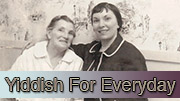[whohit]Words Have. Life Of Thier Own – Maya Angelou[/whohit]
Recently I watched a Master Class on the new Oprah Winfrey Network (OWN) featuring author and poet Dr. Maya Angelou. These classes are one-hour television programs with interviews of celebrities and successful people who give lessons containing valuable advice. They offer words of wisdom from their life experiences to support the viewers in coping with their own challenges in order to help the viewers to live more meaningful, fulfilling lives.
In this class, autobiographical stories revealed a very traumatic experience for Angelou, which took place in her early childhood. The first lesson I learned was that it is possible to overcome huge challenges. Angelou did not let that experience dictate her life. Although many years passed since it happened, not only did she gain strength from overcoming that challenge and the aftermath of it, she has reached out to millions and used her painful experience to help others live better lives.
So much good advice was given in that hour but a couple of her teachings especially resonated with me. One was about words having a life of their own.
“Words are things, I’m convinced. They get in your wallpaper. They get in your rugs, in your upholstery, in your clothes, and finally, into you,” Angelou said. “We must be careful about the words we use. Someday we will be able to measure the power of words.”
In one of my first columns from May 21, 2003, I wrote that the direction I wanted to take this newspaper was to publish fewer words that hurt and more words that heal. I wrote, “I would like to publish fewer words such as stupidity, evil, cowardice, greedy, and hatred. I would like to see more words such as compassion, forgiveness, healing, loving, caring, praising, and rejoicing. News is not usually filled with the latter but there are good things happening and we welcome that kind of news from around the country.”
Then on June 4, 2003 I wrote, “When I was thinking about how to explain why one’s choice of words are so important, I came across an article titled “Seeking Peace Through Our Words” written by Lauren Grabelle, a rabbinic intern at Congregation Beth-El Zedeck in Indianapolis.”
This was during the first war in Iraq when the elder George Bush was in office. Grabelle wrote, “Jews are instructed not simply to desire peace, but to “seek peace and pursue it” (Psalm 34:15). The question for us, then, is how do we seek peace when we are in the midst of conflict? How do we pursue peace in a time of war?
“The same psalm that instructs us to “seek peace and pursue it” tells us to “guard your tongues from speaking evil and your lips from deceitful speech.” Peace begins with the very words we utter. When we speak words of hate, we create hate. When we speak words of peace, we create peace.”
Grabelle continued: “We can pursue peace by engaging in dialogue. We have to consider the words of those whose views are different than our own. Hearing perspectives other than our own allows us to continue to see those around us as btselem elohim, created in the Divine image.”
Concluding she wrote: “In the current situation, we may not feel like we have much control over what is going on in the world. Yet we do have control over what we say in response to the world around us. We could use our words and our voices to say hateful things about those with whom we fight and disagree or we could use words to seek common ground. We could make statements of resignation. Or we can use our words to uplift ourselves and to remind us of our common humanity.”
One week later in the June 11, 2003 issue I wrote, “When I was thinking about the impact words can have, I recalled two remarkable young Jewish women who left behind a legacy a mere 60 years ago. Their words reveal that even in the worst circumstances, it is still possible to have a positive outlook. No doubt thinking and writing optimistically helped alleviate their suffering.” Then I gave two examples of their writings.
“It’s a wonder I haven’t abandoned all my ideals, they seem so absurd and impractical. Yet I cling to them because I still believe, in spite of everything, that people are truly good at heart.” Anne Frank
“Lord, my God, I pray that these things never end: The sand and the sea / The rush of the waters / The crash of the heavens / The human prayer.” Hannah Sennesh
Then one month later in the July 9, 2003 issue, I wrote about “the emotional effects of words of encouragement, praise, and kindness compared to words of blame, disapproval, criticism and condemnation. The former leaves one feeling grateful, uplifted, and happy, the latter can lead to sadness, anger and frustration.” I proceeded to explain how speaking and hearing negative words can lead to physical illness. I concluded that editorial with: “Encouraging words are as honey, sweet to the soul and health to the being.” Proverbs 16:24.
Looking back at what I published eight years ago, I was pleasantly surprised. Who would have known back then that what I was writing would be validated by someone who is as admired and respected as Maya Angelou?







Speak Your Mind
You must be logged in to post a comment.